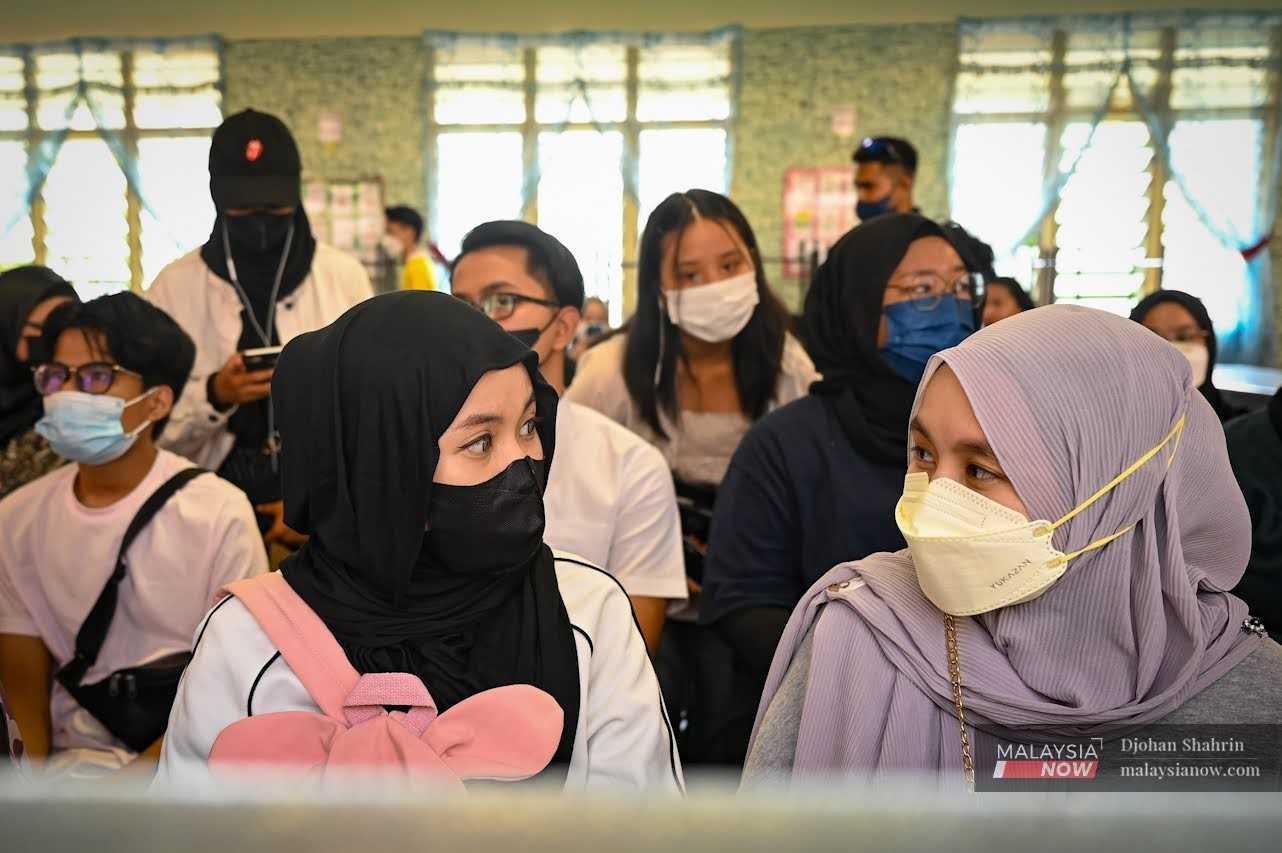First-time voters review 5-day wait for new govt
Some criticise parties and politicians while others say the wait was good for the country.
Just In
Young voters who cast their ballots for the first time at the Nov 19 election are now expressing concern about the country's political turmoil, even after the formation of the new government after five long days.
First-year law student Sonia Pillai said there were many lessons to be taken from the political impasse, especially on the ego and arrogance of some politicians.
"Why is it so difficult to form a government even after winning the election?" the 19-year-old said.
"Party A doesn't want you, party B doesn't either, and party C will follow whatever A and B want. Why?
"It's not because of race or ethnicity – it's all because of pride," she told MalaysiaNow.
One of her friends, Nik Ahmad Haris, agreed, saying that pride was at the root of the issue.
"In the end, they had to apologise," he said, in an implicit reference to DAP, whose leaders Anthony Loke Siew Fook and Lim Guan Eng issued an apology to Sarawak in the days following the election.
Sonia meanwhile said that as young voters, she and her fellow Undi 18 electorate were often looked down on as children who knew nothing about politics.
"But even children know how to say sorry," she added. "There's no need to wait until we become politicians."
The week after the election had seen a tight race between Pakatan Harapan (PH) chairman Anwar Ibrahim and his Perikatan Nasional counterpart Muhyiddin Yassin for the support needed to form the government after inconclusive results which saw no single coalition winning the numbers needed to do so alone.
Talks and negotiations were also held among the leaders of the country's main coalitions until the impasse ended after five days when the Yang di-Pertuan Agong consented to appoint Anwar as the 10th prime minister.
Much of the focus during this time was on BN and its 30 MPs, a number of whom initially refused to toe the party line on cooperation with PH.
BN chairman Ahmad Zahid Hamidi himself came under pressure to step down due to the coalition's dismal performance at the general election.
He was also criticised by his own MPs for unilaterally commiting their support to Anwar.
College student Noor Daniel Ikmal said the five-day period had been good for the people.
Speaking to MalaysiaNow, he said the voters were able to see for themselves the consistency of politicians in keeping their word.
"When one party doesn't agree with the other, they decide not to join forces," Daniel, 20, added.
Engku Ariff who is studying at a private university meanwhile said that the people should reject politicians who put their interests ahead of the party, as well as those facing charges in court.
When this happens, Engku said, political turmoil can be handled in a rational manner.
"Ignore the politicians who prioritise their self-interest. The prime minister should also be transparent and dedicated to a more healthy politics and democratic system."
Subscribe to our newsletter
To be updated with all the latest news and analyses daily.
